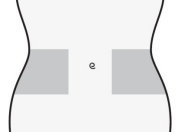What is LMWH?
LMWH is used as an anticoagulant to prevent and treat the formation of blood clots. LMWH stands for low-molecular-weight heparin.
Why administer an anticoagulant?
- As a preventive measure. After surgery, patients are often less mobile. This increases the risk of blood clot formation. LMWH can be administered preventively to help avoid clot formation.
- As a temporary substitution. Patients already on anticoagulants before surgery may temporarily receive LMWH instead of their regular medication. The injections provide an alternative way to thin the blood and reduce the risk of (postoperative) bleeding.
How to administer it correctly?
- The LMWH anticoagulant should be administered around the same time every day.
- It is injected into the fatty tissue under the skin. Preferably, it is injected into a skin fold in the abdomen. If that is not possible, it can be injected into a skin fold at the top of the thigh.
- Be sure to inject in a different spot each day, alternating between left and right.

Preferably inject into an abdominal skin fold, at least 5 cm away from the navel (the grey-shaded area on the illustration).
Instructions for self-administration at home
- Wash your hands.
- Sit or lie down comfortably.
- Remove the protective cap from the syringe.
- Pinch a skin fold and insert the full needle vertically into the fold. In principle, the skin does not need to be disinfected in the home setting.
Keep 5 centimetres away from the navel. - Slowly push the contents of the syringe into the skin fold. Keep the fold pinched until the injection is complete.
- Gently remove the needle and release the skin fold. A safety cover may automatically slide over the needle.
Slight bleeding at the injection site may occur. If so, press on the spot for a few minutes.
What side effects may occur?
LMWH is a blood thinner. Because your blood is thinned, there is an increased risk of bruising and bleeding. If you notice unexplained nosebleeds, blood in your urine or stool, contact your doctor.
Be careful during activities such as shaving. If the skin is damaged, you may bleed for longer.
Allergic reactions are rare. If you develop a rash, swelling, or fever at the injection site or elsewhere on your body, consult your GP immediately.
When should I not use LMWH or be extra cautious?
Always read the patient leaflet first for more information.